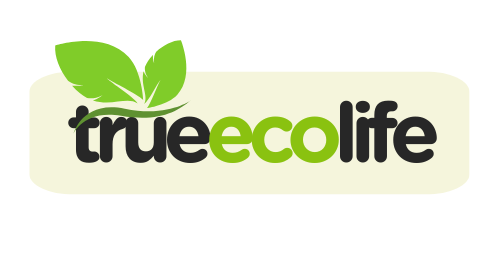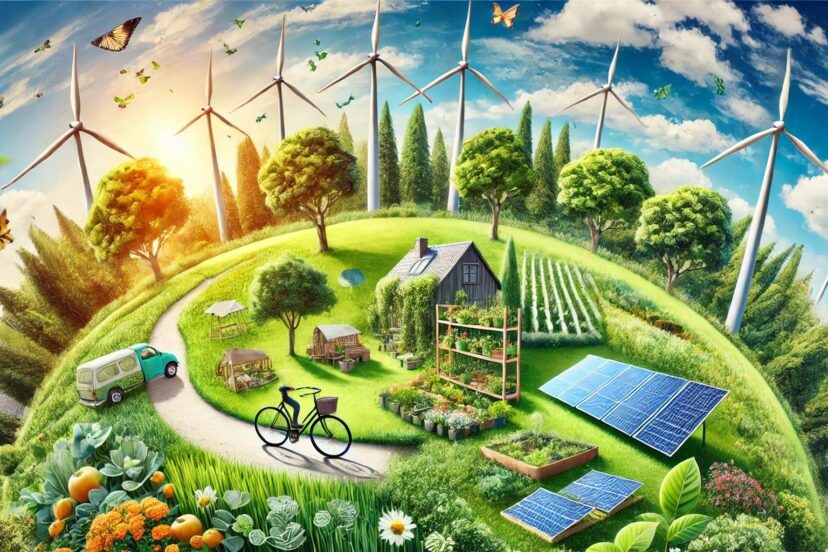Interesting Things About Sustainability You Should Know
We may earn a commission for purchases made using our links. Please see our disclosure to learn more.
Would you like to understand the essence of sustainability even better? Cool! Sustainability is not just a trendy word but a promise to care for Mother Earth. But what does it truly mean in our daily hectic life? In this guide, we’ll dive deeper into how sustainability touches every part of who we are and what we do. Let’s get started!
What Is Sustainability?
Sustainability, at its core, is all about fulfilling our present needs without hindering future generations’ ability to meet their own needs. Let me give you a sample scenario: So, you went to a library to borrow your favorite book. Now what? Of course, you cherish it, read it, and return in in the same condition so the next bookworm can enjoy it too. That’s the whole point of sustainability. It’s about meeting today’s needs without stripping future generations of their chance to thrive.
Why Should You Care About Sustainability?
Everyone of us should care about sustainability, my friend. Picture this: you’re at a picnic with friends, and someone leaves a pile of trash behind. It feels wrong, doesn’t it? After enjoying what nature provides, you just leave your “trash” in return? Nope. That’s not cool!!! Unsustainable living does the same to our planet, leaving a mess for those who come after us. Caring about sustainability means cleaning up after ourselves—literally and metaphorically.
The Three Pillars of Sustainability
Think of sustainability as a three-legged stool. If one leg falters, the whole thing topples over.
- Environmental: Caring for the Earth, like a gardener tending to delicate blooms.
- Social: Building communities that treat everyone with respect and fairness.
- Economic: Ensuring financial practices that nurture, not exploit.
Everyday Choices That Matter
That morning coffee you love? Its story begins far before it meets your lips—from the farmers who cultivate the beans to the energy used in transporting them. Opting for fair trade coffee supports ethical practices, while a reusable mug reduces waste (and gives you that smug sense of eco-pride). Every small choice, like swapping disposable cups for something lasting, makes your morning routine a gesture of kindness to the Earth.
Must-Have Products for a Sustainable Lifestyle
Here’s a list of sustainable products that can help you live a more eco-friendly life. These are practical, widely appreciated items that align with the principles of sustainability:
- Reusable Water Bottles
- Look for stainless steel or BPA-free plastic bottles to reduce single-use plastic waste.
- Beeswax Food Wraps
- A reusable alternative to plastic wrap for covering bowls or wrapping food.
- Eco-Friendly Cleaning Products
- Non-toxic and biodegradable cleaners for your home.
- Reusable Shopping Bags
- Lightweight, washable, and sturdy bags designed to replace disposable plastic bags.
- Composting Bins
- Start your own compost pile with an indoor or outdoor compost bin.
Reduce, Reuse, Recycle: The Golden Rule
Remember your grandma’s knack for whipping leftovers into culinary masterpieces? The reduce, reuse, recycle mantra embodies that same creativity—taking what might seem like waste and transforming it into something valuable. Reducing means thinking twice before consuming, reusing gives items a second (or third) life, and recycling breathes new purpose into discarded materials. It’s not just thrifty; it’s ingenious!
Energy Conservation: Flip That Switch!
Leaving the lights on unnecessarily is like throwing coins into the wind—wasteful and avoidable. A quick flick of the switch when leaving a room may seem inconsequential, but multiply that act by millions, and you’ve got a symphony of savings. Even better, consider energy-efficient bulbs, which not only save energy but last longer, making every light in your home a little greener.
Water: The Liquid Gold
Every drop counts, and no, that’s not an exaggeration. A dripping faucet may seem harmless, but it can waste gallons over time—enough to fill a small swimming pool in a year! Simple actions like fixing leaks, turning off the tap while brushing your teeth, or installing water-efficient fixtures add up to meaningful change. Think of water conservation as safeguarding life itself—because, in many ways, it is.
The Power of Sustainable Transportation
Ever carpooled to work and ended up laughing all the way thanks to a colleague’s impromptu karaoke? Opting for bikes, carpools, or public transport isn’t just about cutting emissions—it’s about building connections and maybe even discovering new talents. With every ride shared or car trip avoided, you’re contributing to cleaner air and quieter cities.
Food Choices: Think Local, Eat Seasonal
Why buy strawberries that have traveled thousands of miles when there’s a farmer down the road with juicy, in-season produce? Eating locally and seasonally isn’t just good for the environment; it’s also a flavorful way to reconnect with nature’s rhythms. Plus, supporting local farmers strengthens communities and keeps traditions alive.
Fashion With a Conscience
Fast fashion might seem like a steal, but its true cost is staggering—for the planet and the people making those clothes. Instead of chasing fleeting trends, choose timeless pieces that last or thrifted gems with a story to tell. When you invest in sustainable fashion, you’re making a statement: style can be ethical and chic.
Green Cleaning Products
If your cleaning spray smells harsh enough to make your eyes water, imagine what it’s doing to the environment. Eco-friendly alternatives use natural ingredients that are kinder to both your home and the planet. Switching to green products isn’t just a cleaner choice—it’s a healthier one for everyone in your household, pets included.
Renewable Energy: Harnessing Nature’s Power
Solar panels gleaming in the sun or a wind turbine spinning on the horizon is nature and innovation in perfect harmony. Investing in renewable energy, whether at home or as part of a broader initiative, ensures we’re tapping into resources that regenerate rather than deplete. It’s a partnership with the planet—a promise to work with, not against, its natural gifts.
Sustainable Home Design
Dreaming of a home renovation? Incorporating materials like bamboo flooring or reclaimed wood isn’t just stylish; it’s thoughtful. These sustainable choices reduce waste and minimize environmental impact, turning your living space into a beautiful reflection of your values. After all, what’s more inspiring than a home that tells a story of care and consciousness?
Composting: Nature’s Recycling System
Think of composting as giving back to the Earth what it gave to you. Your food scraps, lawn clippings, and coffee grounds transform into nutrient-rich soil, completing the circle of life. It’s easy, rewarding, and turns waste into a resource that nourishes gardens and green spaces.
The Digital Footprint Dilemma
It’s easy to overlook the environmental toll of your inbox or streaming habits, but digital waste is real. Clearing out old emails or using devices more efficiently reduces energy demand. Think of it as spring cleaning for the virtual world—a tiny step toward a greener internet.
Educating Others
The power of sustainability lies in its ability to grow through awareness. Sharing tips with friends, hosting workshops, or even posting a quick “Did you know?” on social media can inspire others to make changes. Education goes beyond teaching facts; it’s about sparking curiosity and inspiring action.
Transformative research is essential for addressing global crises like climate change and biodiversity loss. A study in Global Sustainability emphasizes solution-oriented approaches that not only analyze problems but also propose actionable strategies for meaningful change. Similarly, an article in Sustainability Science identifies 12 critical research topics that bridge knowledge gaps and align with evolving global dynamics. These works underline the importance of actionable and interdisciplinary research to achieve sustainability goals.
Supporting Eco-Friendly Brands
Every purchase you make is a statement of values. When you support eco-friendly brands, you’re encouraging companies to prioritize sustainability. It’s a simple yet powerful way to align your shopping habits with your vision for a better world.
Sustainable Tourism: Traveling Light
Exploring the world is a privilege, and doing so sustainably ensures that future generations can enjoy it, too. From eco-lodges to low-impact activities, travel choices can honor the beauty of the places you visit without leaving behind harm.
Planting Trees: Nature’s Air Filters
Each tree planted is a gift to the future. It provides shade, absorbs carbon dioxide, and releases oxygen—a selfless act of nature. Whether in your backyard or as part of a community project, planting trees is a legacy of growth and renewal.
Minimalism: Less Is More
Minimalism isn’t about giving things up; it’s about appreciating what you have. By focusing on quality over quantity, you lighten your environmental impact while creating a life rich in meaning and intention.
The Role of Technology in Sustainability
From apps that monitor your energy use to smart thermostats that optimize efficiency, technology is a valuable ally in the quest for sustainability. These tools make eco-friendly choices easier, helping you save resources and money.
The Power of Community
There’s strength in numbers, and sustainability thrives when people come together. Community gardens, local clean-ups, and shared resources amplify individual efforts, creating lasting impact and fostering connections.
Sustainable Packaging: Rethink Your Wrapping
Plastic bags and cling wrap are so last century. Beeswax wraps, compostable packaging, and reusable containers offer a more Earth-friendly way to package your food and gifts. These small swaps speak volumes.

Advocacy: Be the Change
Advocating for sustainability can feel daunting, but every voice matters. Whether it’s signing petitions, voting for eco-conscious leaders, or participating in rallies, advocacy is how we turn individual actions into systemic change.
Measuring Your Carbon Footprint
Think of tracking your carbon footprint as checking your environmental health. It’s a chance to see where you can improve and celebrate the progress you’ve made—because every step forward matters.
Small Changes, Big Impact
Never underestimate the power of small steps. Each time you choose reusable over disposable or bike instead of drive, you’re contributing to a movement. Together, these little actions build the foundation of a better world.
Conclusion
Sustainability is a story we’re all writing together, each mindful choice adding to a narrative of care and hope for our planet. Simple, daily actions, like choosing a reusable bottle or planting a tree can make a positive impact on our environment These small steps ripple shape a future where forests thrive, oceans flourish, and communities prosper in harmony with the Earth. By embracing sustainability, we’re not just protecting resources—we’re weaving a legacy of respect and possibility for generations to come, proving that our collective efforts today can illuminate a brighter tomorrow.
FAQs
1. What is the simplest way to start living sustainably?
Start small. Switch to reusable bags, carry a water bottle, or recycle diligently. Tiny steps can lead to giant leaps over time.
2. Is sustainability expensive?
Nope! In fact, many sustainable habits, like conserving energy or reducing waste, can save you money in the long run.
3. How can I inspire others to be sustainable?
Lead by example. Whether it’s bringing a reusable coffee cup to your favorite café or sharing easy tips on social media, small acts of advocacy can spark big changes.
4. What are some common misconceptions about sustainability?
One big myth is that sustainability requires drastic lifestyle changes. In reality, it’s about consistent, thoughtful choices over time.
5. Why does sustainability matter so much today?
Our planet is showing signs of strain, from climate change to dwindling resources. Sustainability is how we ensure a livable, vibrant world—not just for us, but for those who come after.




